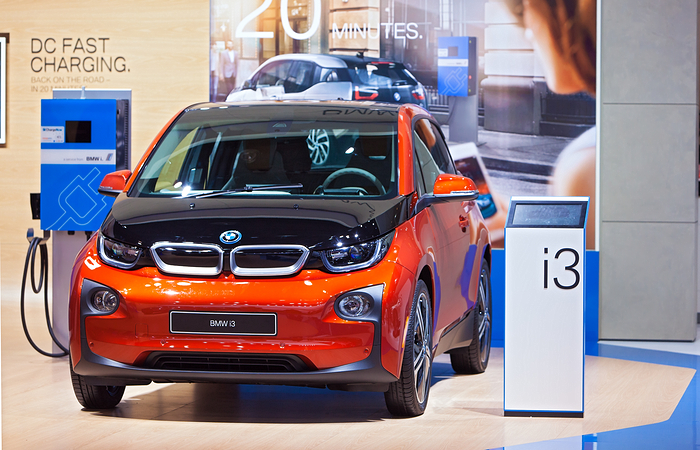Electric vehicles and the sustainability balance sheet

The government’s decision to ban the sale of new petrol and diesel cars by 2040 is the latest in a series of measures from industry and other governments aimed at tackling the damaging effects of increasing levels of nitrogen oxide.
Matt McGeehan CA weighs up the environmental pros and cons of investing in the technology for your next set of wheels or company car fleet.
An EV revolution
Conscientious car owners are increasingly choosing electric vehicles (EVs) to reduce their running costs whilst reducing their environmental footprint.
EVs currently represent a relatively small proportion of total vehicles on the road and are perhaps viewed as being relatively boring and underpowered.
However, with the advent of new models like the stunning Tesla 3, which is due to be unveiled at the end of July and the amazing BMW i8, which is due to be unveiled in 2018, EVs are now turning heads and demand is set to increase exponentially. We are indeed on the verge of an EV motoring revolution.
However, no technological change is without consequences and we need to examine the environmental impact of EV technology on the sustainability balance sheet.

Image credit: Darren Brode / Shutterstock.com
The benefits
- EVs add a great deal to the asset side of the sustainability balance sheet.
- They reduce tailpipe emissions compared to conventional vehicles. Fully electric vehicles have no tailpipe emissions at all and even hybrid electric vehicles have no emissions when running in electrical mode.
- EV batteries don’t use lead or acid and so avoid the harmful environmental impact of disposing of these toxic materials.
- They also reduce noise pollution which is increasingly becoming an issue as motorways get wider and new housing developments get closer to them.
The drawbacks
- The environmental impact of EVs depends on how the electricity that fuels them is produced. If the electricity is produced in, say, a coal-fired power station then this may have a considerable environmental cost per mile. So, when comparing the environmental impact of an EV to a petrol-powered vehicle, we need to consider the source of the electricity. Whilst we may save on tailpipe emissions we need to factor in emissions from the electricity producer.
- EV batteries use large amounts of elements such as nickel, lithium and cobalt. In addition, EVs use comparatively large amounts of copper in their electric drive wiring. These metals are definitely less toxic than the lead and acid used in conventional batteries. However, the mining of these elements has a substantial environmental impact. For instance, nickel is extracted from sulphide ores and this can have a lasting impact on the surrounding area.
- Tesla is investing heavily in its “Gigafactory” which will produce lithium batteries, not only for its cars but for other domestic and industrial applications as well. However, we need to ensure that such high investment in lithium technology does not stifle research into even more efficient forms of energy storage.
- As EV is relatively new technology, we have not yet fully seen the environmental impact of disposing of EVs, and their batteries, at the end of their lives. However, there will be a disposal cost and it needs to be provided for in our sustainability balance sheet.
Weighing it up
On balance, the growth of EVs would appear to be a good thing for improving the sustainability balance sheet.
However, as consumers, we need to bear a few things in mind when making our purchasing decisions.
We may be replacing the environmental impact of internal combustion and disposal of lead/acid batteries with another set of problems arising out of increased mining of nickel, copper, lithium and cobalt as well as unknown end-of-life costs.
We need to consider how our electricity is produced rather than assuming that a plug-in EV is a completely “clean” technology.
When weighing up the statistics such as acceleration, insurance costs and range we should also understand the full global impact of EV technology on the sustainability balance sheet.
Matt McGeehan CA is a Technical Adviser at ICAS.

 By Matt McGeehan CA
By Matt McGeehan CA
